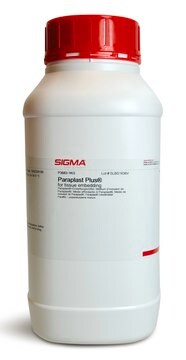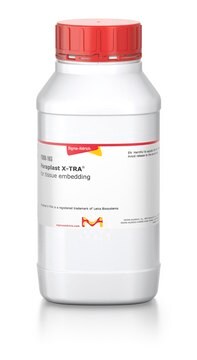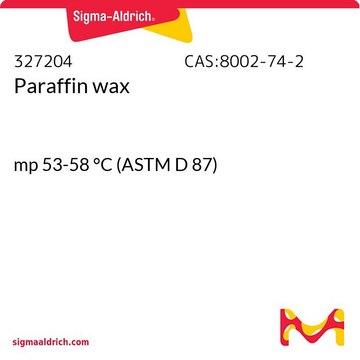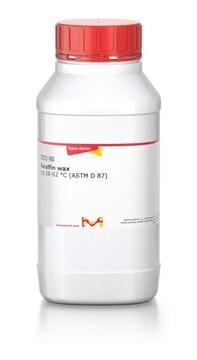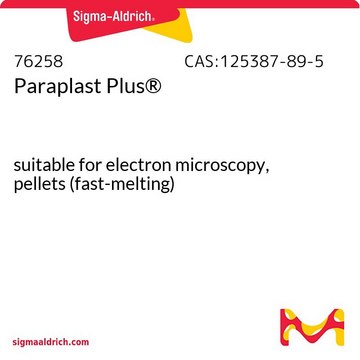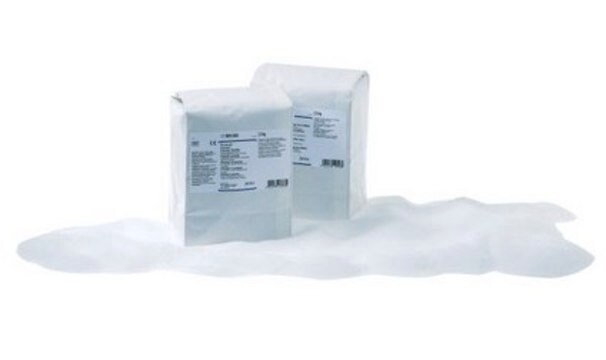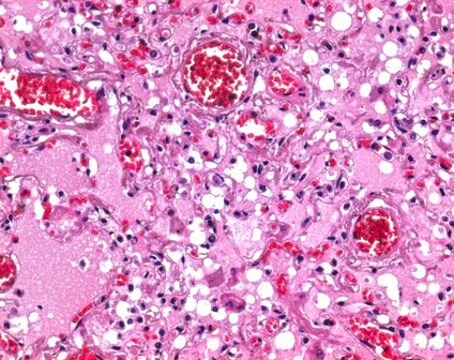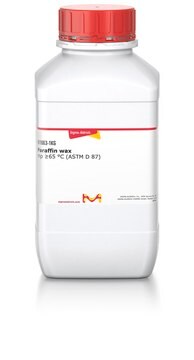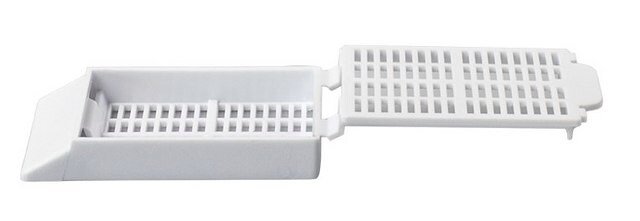P3558
Paraplast®
for tissue embedding
Sinonimo/i:
Paraffin – polyisobutylene mixture
Autenticatiper visualizzare i prezzi riservati alla tua organizzazione & contrattuali
About This Item
Prodotti consigliati
Stato
solid
Punto di fusione
56-57 °C (lit.)
56-57 °C
applicazioni
hematology
histology
Temperatura di conservazione
room temp
Cerchi prodotti simili? Visita Guida al confronto tra prodotti
Descrizione generale
Paraplast® is a paraffin–polyisobutylene mixture for tissue embedding and infiltration. It is a refined combination of highly purified paraffin with plastic polymers. It produces minimal tissue compression and wrinkle-free sections and cuts to 4 μm thickness with excellent ribbon continuity.
Applicazioni
Paraplast® has been used for tissue embedding and in the following applications:
- to screen major groups of vertebrates for the presence of cardiac smooth muscle and its phylogenetic distribution in terrestrial and aquatic turtles
- to study the relationship between membrane impedance and dendrite length of hippocampal neurons
- to compare the regenerative properties of human stem cells of the apical papilla as an alternative to other dental stem cells
Caratteristiche e vantaggi
- Minimal tissue compression.
- Produces wrinkle-free sections.
- Excellent ribbon continuity.
Altre note
Double filtered paraffin wax in pellet form.
Note legali
Paraplast is a registered trademark of Leica Biosystems
Codice della classe di stoccaggio
11 - Combustible Solids
Classe di pericolosità dell'acqua (WGK)
WGK 3
Punto d’infiammabilità (°F)
Not applicable
Punto d’infiammabilità (°C)
Not applicable
Dispositivi di protezione individuale
Eyeshields, Gloves, type N95 (US)
Scegli una delle versioni più recenti:
Possiedi già questo prodotto?
I documenti relativi ai prodotti acquistati recentemente sono disponibili nell’Archivio dei documenti.
I clienti hanno visto anche
Positive Effects of Diphlorethohydroxycarmalol (DPHC) on the Stability of the Integument Structure in Diet-Induced Obese Female Mice
Chae-Lim Kim
Development & reproduction (2015)
Jessica N Witchley et al.
Cell host & microbe, 25(3), 432-443 (2019-03-15)
Candida albicans is a gut commensal and opportunistic pathogen. The transition between yeast and invasive hyphae is central to virulence but has unknown functions during commensal growth. In a mouse model of colonization, yeast and hyphae co-occur throughout the gastrointestinal
Cristina Barrero et al.
Planta, 229(2), 235-247 (2008-10-03)
Transfer cells have specializations that facilitate the transport of solutes across plant exchange surfaces. ZmMRP-1 is a maize (Zea mays) endosperm transfer cell-specific transcriptional activator that plays a central role in the regulatory pathways controlling transfer cell differentiation and function.
Intestinal metabolism of weaned piglets fed a typical United States
or European diet with or without supplementation
of tributyrin and lactitol
or European diet with or without supplementation
of tributyrin and lactitol
A. Piva
Journal of Animal Science (2008)
Enzyme Histochemistry for Functional Histology
in Invertebrates
in Invertebrates
Francesca Cima
Methods in Molecular Biology (2017)
Il team dei nostri ricercatori vanta grande esperienza in tutte le aree della ricerca quali Life Science, scienza dei materiali, sintesi chimica, cromatografia, discipline analitiche, ecc..
Contatta l'Assistenza Tecnica.